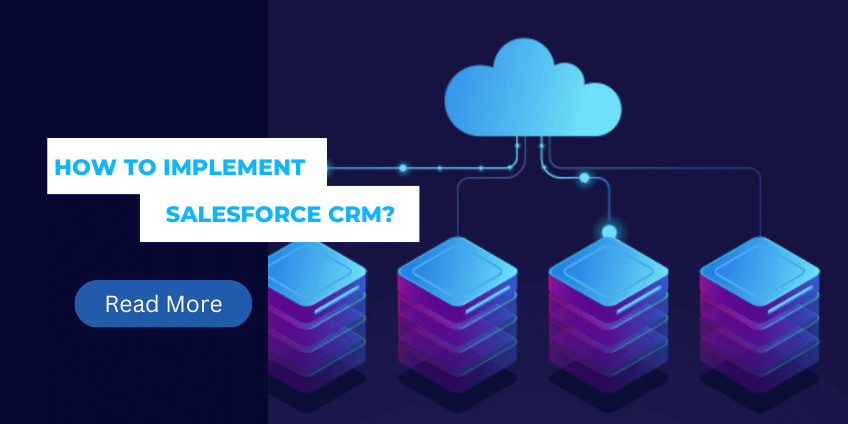Salesforce Marketing Cloud Implementation
In today’s digital age, relying on outdated marketing strategies can be a costly mistake. Many businesses still believe that traditional marketing methods are sufficient for driving growth. However, this belief overlooks the transformative potential of Salesforce Marketing Cloud Implementation. If you’re not leveraging this powerful tool, you’re missing out on opportunities to enhance customer engagement, streamline processes, and achieve exceptional marketing results.
Salesforce Marketing Cloud Implementation is more than just adopting new software; it’s a strategic shift that integrates cutting-edge technology with your marketing efforts. By embracing Salesforce Implementation, you can revolutionize your approach, making your campaigns more effective and data-driven. Let’s explore the intricacies of Salesforce Marketing Cloud Implementation and how it can be a game-changer for your business.
Understanding Salesforce Marketing Cloud Implementation

Salesforce Marketing Cloud Implementation involves deploying Salesforce’s robust marketing platform within your organization. This process includes setting up the software, customizing it to fit your business needs, and integrating it with existing systems. The goal of Salesforce Implementation is to create a cohesive and efficient marketing ecosystem that enhances your ability to reach and engage customers.
Why Salesforce Marketing Cloud Implementation is Essential
1. Enhanced Customer Engagement:
One of the primary benefits of Salesforce Marketing Cloud Implementation is the ability to enhance customer engagement. The platform provides tools for creating personalized and targeted campaigns, allowing you to connect with your audience on a deeper level. By leveraging customer data, you can deliver tailored messages that resonate and drive action.
2. Streamlined Marketing Processes:
Salesforce Implementation streamlines marketing processes by automating repetitive tasks. This automation not only saves time but also reduces the risk of human error. With features like email automation, journey mapping, and real-time analytics, you can ensure your campaigns are both efficient and effective.
3. Data-Driven Decision Making:
Implementing Salesforce Marketing Cloud gives you access to comprehensive analytics and insights. These data-driven insights enable you to track campaign performance, measure ROI, and make informed decisions. By understanding what works and what doesn’t, you can continually optimize your marketing strategies for better results.
Steps to Successful Salesforce Marketing Cloud Implementation
1. Assessment and Planning:
The first step in Salesforce Marketing Cloud Implementation is to assess your current marketing processes and identify areas for improvement. This involves understanding your business goals, audience, and existing technology stack. Planning is crucial to ensure that the implementation aligns with your strategic objectives.
2. Customization and Integration:
Once you have a clear plan, the next step is customization and integration. Salesforce Marketing Cloud is highly flexible and can be tailored to meet your specific needs. Integrating it with your CRM and other tools ensures a seamless flow of data and a unified view of your customer interactions.
3. Data Migration:
Migrating existing data to the Salesforce Marketing Cloud is a critical step. This involves cleaning and transferring data to ensure accuracy and consistency. Proper data migration sets the foundation for effective use of the platform’s features.
4. Training and Adoption:
Successful Salesforce Marketing Cloud Implementation requires training your team to use the platform effectively. Providing comprehensive training ensures that your team can leverage the platform’s capabilities to their fullest potential. Encouraging adoption across the organization is also vital for long-term success.
5. Continuous Optimization:
Challenges and Solutions
1. Resistance to Change:
One of the common challenges in Salesforce Implementation is resistance to change. To overcome this, it’s important to communicate the benefits of the platform and provide adequate training and support to your team.
2. Data Quality Issues:
Ensuring data quality is critical for successful implementation. Conducting thorough data cleaning and validation before migration can prevent issues related to inaccurate or incomplete data.
3. Integration Complexities:
Integrating Salesforce with existing systems can be complex. Working with experienced implementation partners or consultants can help navigate these complexities and ensure a smooth integration process.
Benefits of Salesforce Marketing Cloud Implementation
1. Unified Customer View:
Salesforce Marketing Cloud provides a unified view of customer interactions, enabling personalized and targeted marketing strategies.
2. Multi-Channel Campaigns:
Marketers can orchestrate multi-channel campaigns seamlessly, integrating email, social media, mobile, and advertising efforts for a cohesive customer experience.
3. Advanced Analytics and Reporting:
The platform offers robust analytics and reporting tools, providing valuable insights into campaign performance and customer behavior.
4. Automation Capabilities:
Salesforce Marketing Cloud excels in automation, allowing marketers to streamline repetitive tasks, nurture leads, and create personalized customer journeys.
5. Scalability:
Despite its complexity, Salesforce Marketing Cloud is designed to scale with the growth of businesses, accommodating evolving marketing needs.
Conclusion:
Salesforce Marketing Cloud Implementation is a strategic investment that can transform your marketing efforts. By enhancing customer engagement, streamlining processes, and enabling data-driven decision-making, this powerful platform can help you achieve unprecedented marketing success. Embrace Salesforce Marketing Cloud Implementation to stay ahead in a competitive landscape and unlock new growth opportunities for your business.

